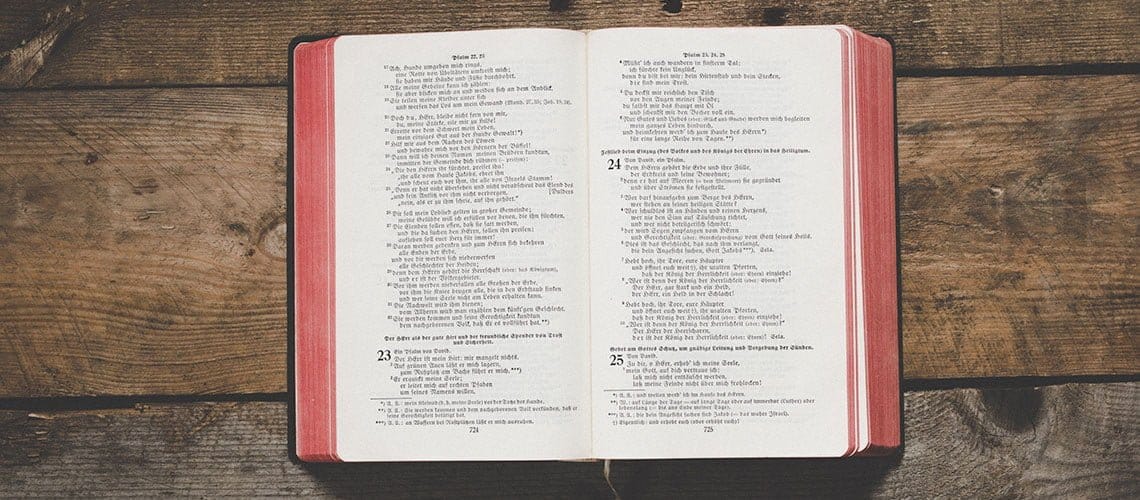New City Catechism Q4: “God created us male and female in his own image to know him, love him, live with him, and glorify him. And it is right that we who were created by God should live to his glory.”
God Created Us
God doesn’t act without purpose.
We are created beings. Nothing originated from man. Wisdom, intellect, consciousness, and humanity are all ideas from God. And this is a rarely disputed fact. That God created us is not a belief that is unique to Christianity. In fact, almost all people from all times and in all places assume our creation.
Why do people all throughout history believe that we are created? Romans 1 gives us the answer, “[God’s] invisible attributes, that is, his eternal power and divine nature, have been clearly seen since the creation of the world, being understood through what he has made.”
God has partially revealed himself through creation. The skies, animals, humans, and everything else all point to an intelligent, creator God.
And we all know that God doesn’t act without purpose. Unlike us, he is not capricious. God created us with a reason, and his intentions will surely be met.
Male and Female
The first thing mentioned by the answer from the catechism is that we were created male and female. This may seem obvious to some, but there is actually deeper truth to be found here that can impact the way that we live our lives.
The first person created was a man name Adam. It wasn’t long after Adam’s creation that God saw that it was not good for him to be alone.So, he created a helpmate for him: a woman named Eve.
We were created male and female because we are meant to complement each other. Man and woman are meant for each other, and are better together. This is God’s good creative order.
In His Image
The doctrine of the Imago Dei is mentioned next. “Imago Dei” is a Latin phrase used throughout church history in reference to the Bible’s teaching on humankind being made in the image of God.
Though the fall has affected us and our nature totally, we maintain that we are still made in the image of God. Being made in the image of God doesn’t refer to any one specific characteristic that we have. Rather, it points to that God has made us with similarities to himself, though not exactly like himself.
Scripture continues to reveal what this means throughout the rest of its pages, and it may not be wise to try to give an exhaustive list of everything that this may mean.
What we do know is that there are many particular ways that God has made us like himself, and we are his representatives toward the rest of creation.
For Relationship with Him
Humans were not made to live life in isolation. In fact, it is very unhealthy for us to be without community with God and with others. From the first page of scripture, we see that God himself is relational: “Let us make man in our image.”
Very soon we also see that “It is not good for man to be alone.” We were created as relational creatures. And our chief relational need is for community with God.
This is a distinction that we have from the rest of creation. Notice how God doesn’t interact with the rest of creation the way he interacts with man in the accounts of creation. God creates and moves on from his creation of water, the skies, and everything else. Except humanity. He then begins talking to us and interacting with us.
Paul Tripp writes, “God knew that even though Adam and Eve were perfect people living in perfect relationship with him, they could not figure out life on their own. They were created to be dependent people.”
For His Glory
We were created to glorify God. There is no being in all of creation that compares to the creator. His love defines love. His wisdom defines wisdom. His perfection defines perfection.
In truth, only God is worthy to be glorified. So, we want to cry out with the Psalmist, “Not to us, Lord, not to us, but to your name be the glory.”
We are meant to glorify God in our entire existence. By our breath, our belief, our obedience, our love, and everything else we have and do.
Another Latin phrase we should all be familiar with is “Soli Deo Gloria.” This phrase has been important in recent church history, and it means “Glory to God Alone.”
How You Should See Yourself
The answer to this question should not just affect the way you see God, it should also affect the way you see yourself. You are not an accident in God’s creation. You were created with purpose, and you bear the image of God.
Everyone, bearing the image of God, has inherent dignity and no live is without value. And this includes you.
But we also see from the answer to this question that we desperately need God. We were created for relationship with him. Trying to live your life apart from God is the epitome of foolishness.
How You Should See Others
Every single person alive is a person who is created by God in the image of God. They have a purpose. And nobody should ever be treated as insignificant, unimportant, or lesser than ourselves.
We should also recognize that every single person we will talk to today is in need of a relationship with the eternal God. The good news is that there is a way to have a sure, steadfast eternal relationship with him. This is why we must plead with people to be reconciled to God! They need to hear the gospel of Jesus Christ, which is our only hope of reconciliation.
We should treat others kindly, respectfully, and with love. And this love should drive us to deep, genuine care for their souls.
By Brooks Szewczyk
Pastoral Intern



